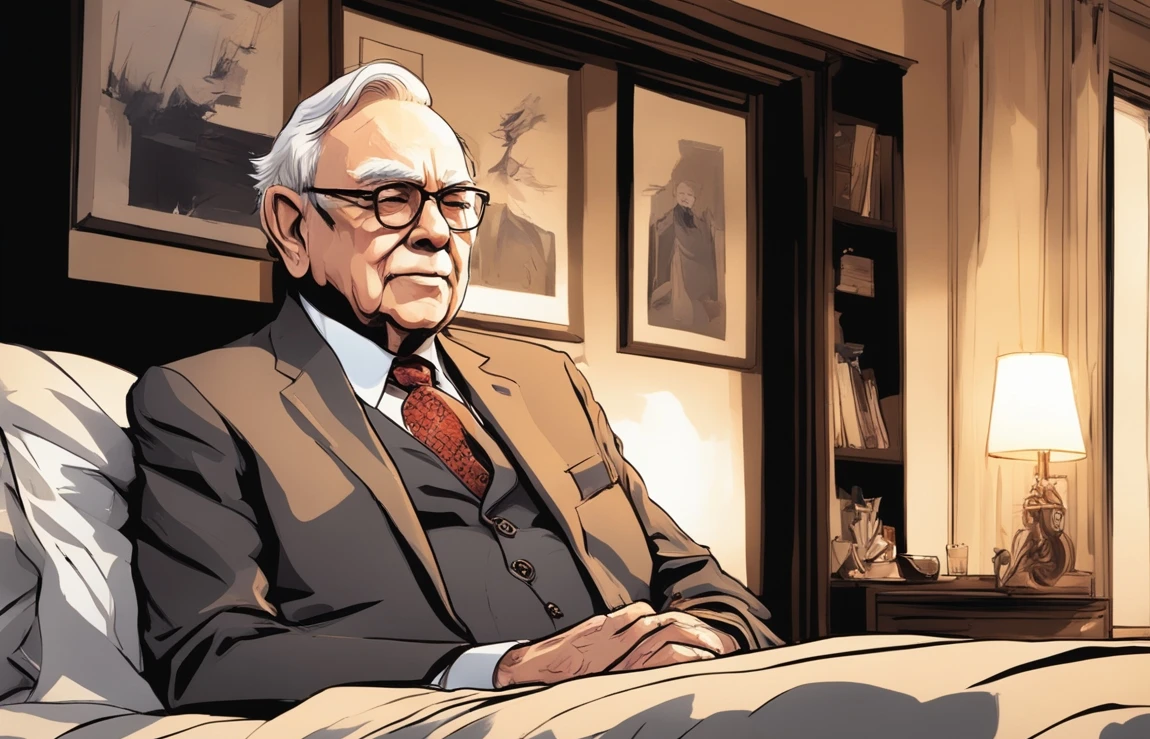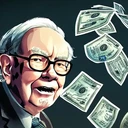Tags: R.C. Willey / History
This fanpage is not officially affiliated with Berkshire Hathaway: Disclaimer
Embark on a riveting journey through the untold story of R.C. Willey, a hidden gem within Berkshire Hathaway's illustrious portfolio. Discover how this unassuming retail giant embodies the conglomerate's investment philosophy, from its humble beginnings to its remarkable growth and commitment to sustainability. Join us in unraveling the captivating tale of R.C. Willey's enduring legacy and its pivotal role in shaping the future of responsible investing.
Introduction
Berkshire Hathaway, the conglomerate masterminded by the legendary Warren Buffett, is a tapestry of diverse investments, each thread representing a company with its own unique story and contribution to the whole. Among these threads is a lesser-known but equally significant company: R.C. Willey, a beacon of Berkshire Hathaway's legacy in the retail sector ↗. Despite its low profile, R.C. Willey stands out as a testament to the conglomerate's investment philosophy, which prizes long-term value, strong management, and ethical business practices 1.
R.C. Willey, with its deep-rooted history and steady growth, encapsulates the essence of a Berkshire Hathaway investment. Founded in the throes of the Great Depression, the company has evolved from a humble door-to-door appliance sales operation to a leading home furnishings retailer in the western United States. Its journey is not just a business case study but a narrative of resilience and strategic evolution 2.
Information about R.C. Willey is not readily available; even Berkshire Hathaway's annual reports provide only a glimpse into the company's operations 5. This article aims to shed light on the intricacies of R.C. Willey's business model, culture, and its pivotal role within the Berkshire Hathaway family. Today, R.C. Willey is recognized for its commitment to sustainability, customer service, and a wide array of products that cater to the modern consumer's needs 23.
Understanding R.C. Willey's historical context, market strategy, and alignment with Berkshire Hathaway's values is crucial for shareholders and business enthusiasts alike. This article will explore the company's beginnings, its acquisition by Berkshire Hathaway, and its significance as a part of one of the most respected conglomerates in the world.
The Humble Beginnings
In 1932, Rufus Call Willey embarked on a venture that would lay the groundwork for a retail empire. With determination and a pickup truck, he began selling Hotpoint-brand appliances door-to-door in Syracuse, Utah 2. This modest beginning was the seed from which R.C. Willey would grow, driven by a dedication to customer service and an entrepreneurial spirit.
William H. Child, who took the helm in 1954, recognized the potential for diversification and added furniture to the company's product lineup, propelling R.C. Willey into a new realm of retail 2. The mid-20th century was a time of economic recovery and growth, and R.C. Willey tapped into the burgeoning demand for home furnishings.
| Year | Milestone |
|---|---|
| 1932 | Rufus Call Willey starts selling appliances door-to-door |
| 1954 | William H. Child takes over and introduces furniture |
| 1990s | Expansion to multiple stores, becoming Utah's market leader |
The company's rise to dominance in the Utah market was marked by a series of strategic expansions, eventually reaching beyond state lines. R.C. Willey's adherence to cultural and religious principles, such as closing its doors on Sundays, did not hinder its success; rather, it underscored the company's commitment to its values 1.

The Berkshire Hathaway Acquisition
The year 1995 marked a pivotal moment in the history of R.C. Willey when Berkshire Hathaway acquired the company for $175 million in stock 1. Warren Buffett was drawn to R.C. Willey's market dominance, honest management, and strong customer-centric approach. These qualities resonated with Buffett's investment philosophy, which favors companies with a competitive edge and ethical leadership.
Bill Child's decision to sell to Berkshire Hathaway for over $20 million less than other offers was a testament to his desire to preserve the company's legacy and ensure its values remained intact 1 ↗. This alignment with Berkshire Hathaway's ethos was a significant factor in the acquisition.
The economic landscape of the mid-1990s was ripe for such a strategic move, and R.C. Willey became an integral part of Berkshire Hathaway's retail investments. Bill Child continued to serve as chairman, and in 2001, Scott L. Hymas stepped in as CEO, carrying forward the vision and guiding the company into the new millennium 2.
| Acquisition Comparison | R.C. Willey | Other Berkshire Retail Investments |
|---|---|---|
| Year of Acquisition | 1995 | Varies |
| Investment Philosophy | Market dominance, ethical management | Long-term value, strong leadership |
| Post-Acquisition Leadership | Bill Child as chairman, Scott L. Hymas as CEO | Varies |
R.C. Willey's acquisition by Berkshire Hathaway not only expanded the conglomerate's retail footprint but also reinforced its commitment to investing in companies with a solid foundation and a clear vision for the future.
Sustainability and Innovation
R.C. Willey's journey towards sustainability and innovation reflects a deep-seated commitment to environmental stewardship and forward-thinking business practices. As a proud member of the Sustainable Furnishings Council, R.C. Willey has positioned itself at the forefront of eco-friendly practices within the home furnishings industry 3. This dedication is further cemented by the company's adherence to the "What's it made of?" pledge, which underscores a proactive approach to inquiring about the presence of harmful chemicals and volatile organic compounds (VOCs) in their products 3.
The strides made by R.C. Willey in sustainability are not only commendable but quantifiable. The company has been lauded with a High Score on the 2022 Wood Furniture Scorecard, showcasing its commitment to responsible sourcing and manufacturing 3. Furthermore, R.C. Willey's appliance and mattress recycling programs have significantly reduced the company's reliance on landfills by over 85%, a testament to its dedication to a circular economy 3.
In the realm of packaging and advertising, R.C. Willey has upgraded to partially recycled cardboard and abandoned Styrofoam packing peanuts in favor of 100% recyclable paper. The company's ads are printed on eco-friendly papers, which utilize less fiber, fewer chemicals, and less energy during production, reflecting a holistic approach to sustainability 3.
The company's warehouses and corporate offices have undergone a lighting revolution, with all fluorescent lights being replaced with energy-efficient bulbs that use about 50% less energy ↗. Additionally, motion-activated light bulbs have been installed to further cut down on daily energy usage 3. These initiatives not only reduce the company's carbon footprint but also result in significant cost savings.
R.C. Willey has also embraced the electric vehicle movement by offering ChargePoint EV Charging Stations at select locations, catering to the growing number of eco-conscious consumers 3. Moreover, the company's extensive selection of ENERGY STAR products enables customers to save money while conserving energy, aligning individual consumer choices with broader environmental goals 3.
Through these concerted efforts, R.C. Willey is not just selling furniture; it is crafting a legacy of sustainability that resonates with the values of modern consumers and the ethos of Berkshire Hathaway's long-term investment philosophy.
Expanding Product Offerings and Experiences
In a dynamic retail landscape, R.C. Willey has expanded its product offerings to cater to a diverse range of customer preferences and lifestyles. The addition of pizza ovens, including both portable and permanent options, taps into the culinary passions of the American household, where, as Bobby Tello notes, "More than 90 percent of Americans eat pizza once a week" 4. This strategic move aligns with the cultural fabric of the nation and represents a savvy business decision to capitalize on this ubiquitous culinary trend.
The company's range of grills, priced from $399 to over $3,900, caters to both casual backyard enthusiasts and serious grill masters, demonstrating an understanding of the varied economic backgrounds and interests of their customers 4. R.C. Willey's inventory of electric Magnum Mountain Bikes and pinball machines, including the popular Godzilla model, further accentuates the store as a destination not just for home furnishings but for home entertainment and outdoor adventures 4.
These diverse product offerings reflect R.C. Willey's adaptability to changing consumer trends and its commitment to providing a unique shopping experience. By expanding beyond traditional furniture and appliances, R.C. Willey has fostered increased customer engagement and sales, turning shopping into an experience rather than a mere transaction.
For more information about store locations and the wide array of products available, customers can visit rcwilley.com, where the company's commitment to innovation and customer satisfaction is on full display 4.
R.C. Willey also has a vivid online community. Their videos on YouTube provide insights into products and events. Interestingly, most of the videos are short but here's one on how to use the grills to smoke ribs:
The Economic Impact and Future Outlook
Since its acquisition by Berkshire Hathaway, R.C. Willey has seen remarkable growth, with sales soaring beyond the $500 million mark 15. This financial performance is a testament to the company's robust business model and strategic vision. With approximately 2,300 employees, R.C. Willey has become a significant employer in the regions it operates—Utah, Idaho, Nevada, and California—contributing substantially to the local economies 5.
The strategic placement of stores and distribution centers has been a key factor in R.C. Willey's success, with decisions being made after careful consideration of demographic and economic factors. Looking ahead, the company's future growth prospects include potential market expansion and product diversification, which could further solidify its position in the retail sector.
However, the retail landscape is ever-changing, and R.C. Willey faces both challenges and opportunities ↗. The company must navigate the complexities of evolving consumer behaviors, e-commerce competition, and economic fluctuations. Yet, its commitment to sustainability and customer-centric innovation may well be the differentiating factors that ensure its long-term success and resonance with consumers 3.
R.C. Willey's performance and strategic direction are closely aligned with Warren Buffett's vision for Berkshire Hathaway's retail investments, which prioritize market dominance, honest management, and a commitment to core values. As R.C. Willey continues to adapt and grow within this framework, it stands as a beacon of Berkshire Hathaway's legacy, demonstrating the conglomerate's acumen in nurturing businesses that endure and thrive over time.
Conclusion
As we draw the curtains on our exploration of R.C. Willey, it's clear that this company is not just a retail store; it's a testament to the enduring legacy of Berkshire Hathaway's investment philosophy. From its modest inception as a door-to-door sales operation in 1932 to its current status as a market leader with a robust commitment to sustainability and innovation, R.C. Willey has proven to be a beacon of Berkshire Hathaway's values ↗.
The story of R.C. Willey is one of unwavering adherence to core principles and a customer-centric approach. This is a business that has thrived by not just selling furniture and appliances but by fostering a sense of community and trust with its customers. The unique aspects of R.C. Willey's business model, including its commitment to sustainability, are not mere corporate strategies but reflections of a deep-seated respect for the environment and future generations 3. The expansion of product offerings, such as pizza ovens and pinball machines, speaks to the company's ability to innovate and cater to the evolving tastes of consumers 4.
The cultural and historical significance of R.C. Willey's business practices cannot be overstated. By maintaining its practice of closing stores on Sundays, the company honors its roots and demonstrates how traditional values can coexist with modern retail success 12. This balance of old and new is a hallmark of a company that respects its past while looking towards the future.
Warren Buffett's description of R.C. Willey as “A jewel of a company” encapsulates the exceptional nature of this enterprise 1. For shareholders of Berkshire Hathaway, R.C. Willey stands as a shining example of what a company can achieve when it aligns profitability with integrity and responsibility. It is a model that challenges the retail industry to rise to higher standards of customer service and environmental stewardship.
The broader implications of R.C. Willey's success extend beyond retail. They offer a blueprint for responsible investing and demonstrate the potential for businesses to lead with values without sacrificing financial performance. As we consider the future of R.C. Willey, there is a palpable sense of potential for the company to continue evolving while steadfastly maintaining its core values and market leadership.
In conclusion, R.C. Willey is more than a subsidiary; it is a vibrant chapter in the Berkshire Hathaway narrative—a chapter that resonates with the ethos of investing in companies that are not only profitable but also principled. As shareholders and observers of the business world, let us take a closer look at R.C. Willey, not just for its financial merits but as a model of Berkshire Hathaway's investment philosophy brought to life. Let this be a call to action to recognize and support businesses that, like R.C. Willey, are paving the way for a future where success is measured not only in dollars and cents but in the positive impact made on the world.
References
-
Warren Buffett's Roller-Coaster Ride With Retail - Forbes - www.forbes.com ↩↩↩↩↩↩↩
-
RC Willey Home Furnishings - Wikipedia - en.wikipedia.org ↩↩↩↩↩↩
-
Go Green with RC Willey in protecting the environment - www.rcwilley.com ↩↩↩↩↩↩↩↩↩↩↩
-
RC Willey now has pizza ovens, pinball machines and so much more! - www.fox13now.com ↩↩↩↩↩
-
Berkshire Hathaway annal report 2022 - relevant passages on R.C. Willey - www.berkshirehathaway.com ↩↩↩











